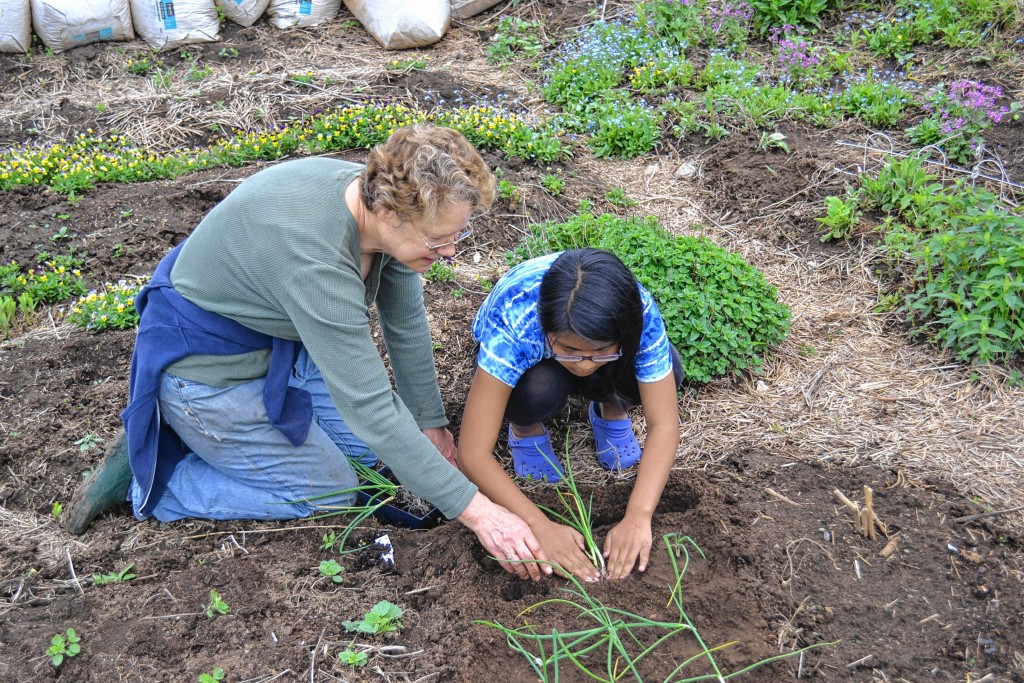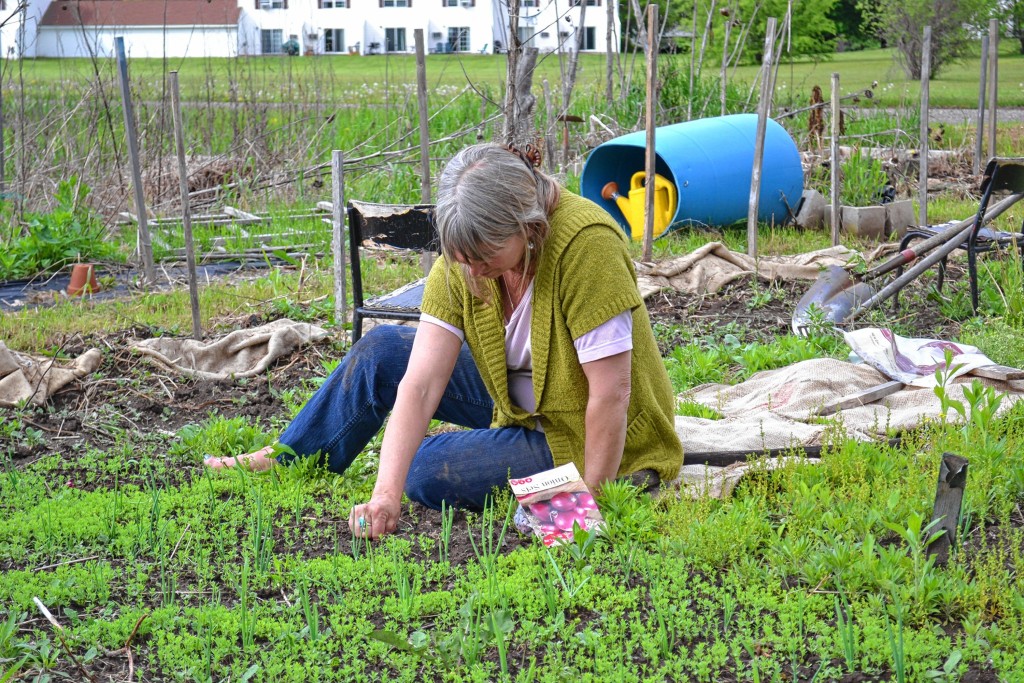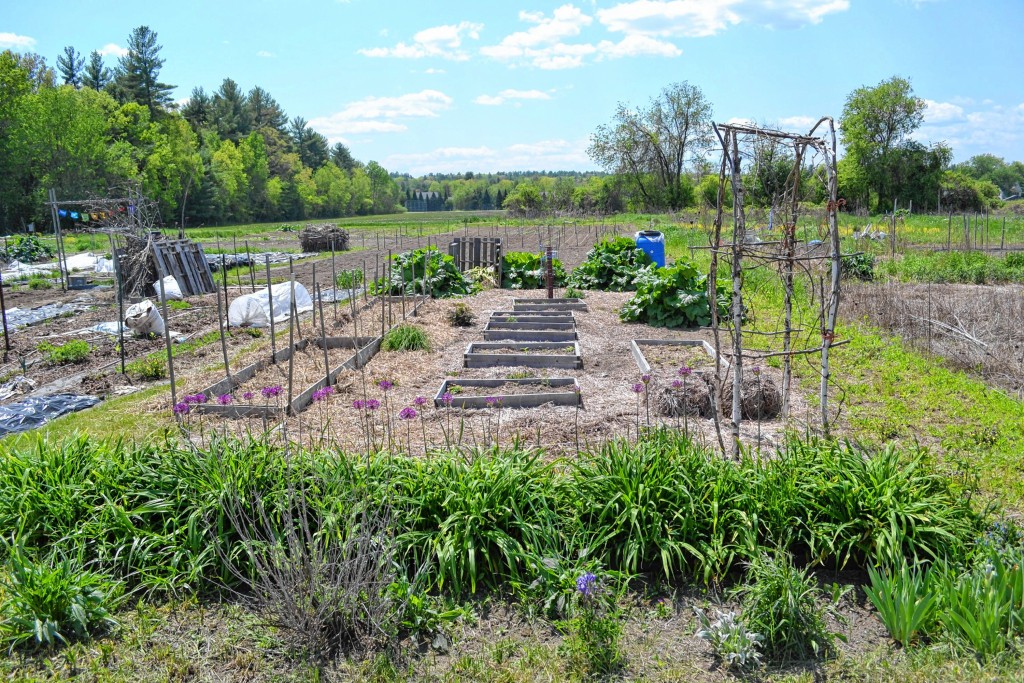There’s nothing quite like feeling the dirt between your fingers as you plant a seed.
That seed will hopefully sprout and grow into a beautiful flower, hearty vegetable or tasty fruit at the end of the summer for you to enjoy. There’s something to be said about growing your own food.
But if you live in downtown Concord, you might not have the kind of space required for a garden. It might be too shady or no yard at all. And if you grew up on a farm, spent time in a garden as a youngster or have been itching to unleash your inner green thumb, it can be a frustrating reality that rears its ugly head right about this time every year.
“People love having their gardens and living in downtown Concord can be tough,” said Bob Spoerl, who oversees the Birch Street community garden for the New Hampshire Division of Forests and Lands.
Don’t go jumping off that ledge just yet because there are options. And if it doesn’t work out this year, it could in the future. If you didn’t know, there are these things all around the country called community gardens and it just so happens there are some right here in Concord.
Along one side of Birch Street, which is a dirt road off of Clinton Street (we know, who knew there was a dirt road in Concord?), in the Russell-Shea State Forest, there are rows and rows of plots. There are three sizes – 25 feet by 50 feet. 50 by 50 and 100 by 50.
“I love to garden and I have a shady plot at home so I get to have my full sun flowers and vegetables here,” said Millie LaFontaine, who has had a plot on Birch Street for the last seven or eight years.
And right now, if you took a drive by on a nice afternoon, you’ll see people weeding and rototilling, planting and planning, getting ready for a long summer of work.
“I like to dig in the dirt and I consider this a peaceful place,” said Linda Graham, who got a Birch Street plot for a place to plant her father’s dahlias many years ago.
The 25 foot by 50 foot plots look big, the 50 by 50 are enormous and the 100 by 50 don’t even have an adjective to describe the shear magnitude of what it would take to maintain it.
“For anyone who hasn’t gardened, (25 by 50) is a big plot,” Spoerl said.
But people seem to handle the space just fine because as of last week, all but 20 plots were spoken for and Spoerl was working his way through the wait list to fill those last available ones for the summer. It’s a mix of longtime users and some who are taking on the garden space for the first time.
“It’s been a learning experience every year,” LaFontaine said. “I try to do new things every year.”
And it seems – from the time we spent down there talking with folks – to be a little community. People who have spent a few seasons at the community garden help the newbies with planting ideas and ways to get the ground ready for the year. Neighbors grow more of one crop to share and get others in return.
“Everybody’s got a different theory on what to grow and how to grow it,” Spoerl said.
It’s a commitment though. There’s no running water so you’ve got to bring it in, along with whatever tools, fertilizer and plantables you might need. Let’s just say it’s not for the faint of heart.
“It’s always a fight against the weeds. There’s some very successful weeds around here,” LaFontaine said.
But it is cheap. It only costs $20 for a 25 foot by 50 foot plot, $30 for the 50 by 50 and $40 for a 100 by 50.
“I enjoy the process,” Graham said. “Put some seeds in the ground and see what happens.”
Across town, on the campus of NHTI, there’s the Sycamore Field Community Garden Project. It’s a little different in the fact that the plots are reserved for low income families and there’s no cost associated with getting one.
Everything is provided for the gardners, many of whom are refugees who now call Concord home. Garden coordinator Cheryl Bourassa listed off many of the languages spoken at the garden and it was almost too many to count.
“There’s this community between people who don’t even speak the same language,” Bourassa said.
There are 168 plots, but well over half of those were kept for this year. Bourassa said if the plots are used and taken care off, the gardners get to keep them. If they become overgrown or not attended to, then they are put into a lottery the following year. This year, about 60 plots opened up, but there were more than 100 people in the lottery. You don’t need to be a mathematician to figure out how many remain available.
Two wells were put in this year so gardeners didn’t have to walk down an embankment to a pond and lug it back up the hill, and then all the way to their 13-foot by 27-foot plot.
“They are all really good gardeners,” Bourassa said. “And many grow things you can’t just go and buy.”
The Sycamore garden opened in 2009 with 54 plots and has grown by leaps and bounds. The Birch Street gardens have been there for a long time – too long for anyone we talked with to remember.
“We have grown and grown and eventually we had to stop because we didn’t have enough water,” Bourassa said.
And since every gardnerer that we’ve talked to over the years has told us that Memorial Day weekend is the time when you should start putting things in the ground, chances are you’ll see people at the gardens just about any time you drive by.
“Any evening at 5 o’clock this time of year, you could see 100 people walking around,” Bourassa said.
It’s not uncommon for people to have chairs and umbrellas, and hang out for a while.
“People are around all the time,” Spoerl said. “It’s a little community down here.”
But just remember not to take anything – these are not free range gardens. There have been some thefts of materials, flowers and crops over the years and that’s not fair to those who put in all the hard work.
“It’s their property so the only way you should be in here is if you’ve got the owner’s permission,” Spoerl said.
To learn more about the gardens, contact Spoerl at Robert.Spoerl@dred.nh.gov and Bourassa can be reached at cbourassa59@gmail.com.











